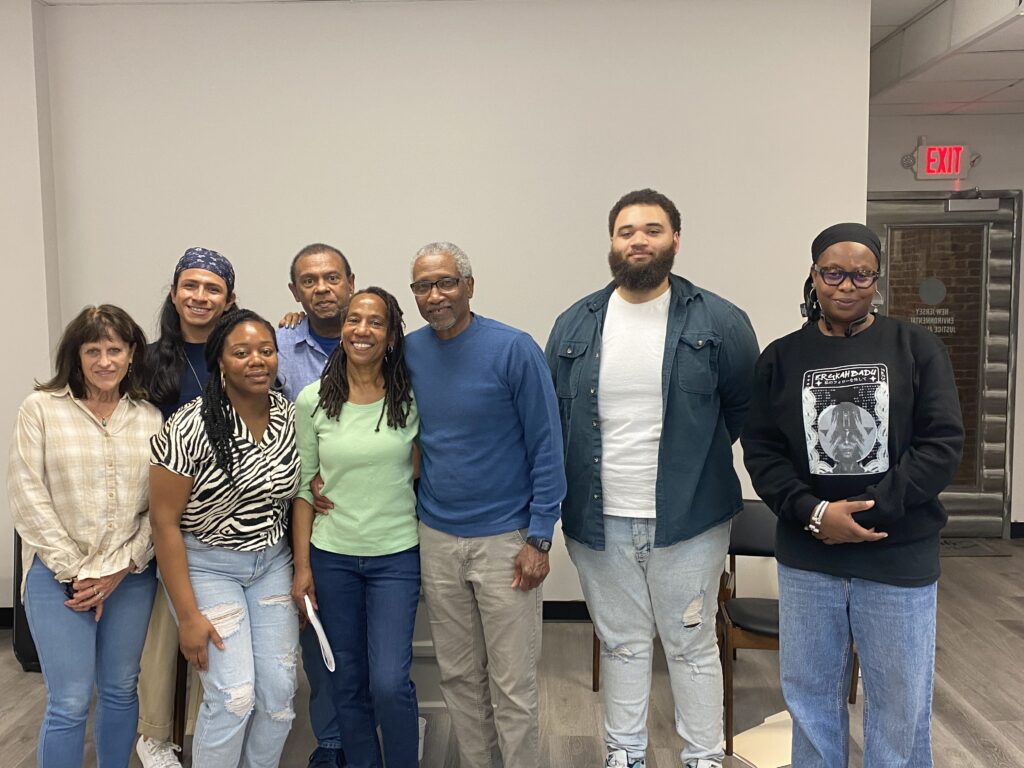This Fall, NJEJA embarked on a cinematic journey with our first-ever Fall Film Series, delving into the crucial intersections between environmental justice and various social justice themes. Together, we explored topics such as the Prison-Industrial Complex, Environmental Racism, and Black Maternal Health. Join us in reflecting on the impactful stories we’ve encountered and the thought-provoking discussions that unfolded.
Film #1: Beyond Walls
In October, we launched with a screening of “Beyond Walls,” a compilation of short films which shed light on the resilience of individuals and families directly impacted by the carceral system. In a special post-screening discussion, we were honored by the presence of formerly incarcerated activists Debbie and Mike Africa, who emphasized the intersections between environmental justice and the prison industrial complex. We learned that “one-third of state and federal prisons are located within 3 miles of federal Superfund sites, the most serious contaminated places requiring extensive cleanup.” Another key aspect of the conversation focused on disposability as a common thread between mass incarceration and the disproportionate burdens faced by EJ communities.

Film #2: Town Hall – Resolution 50
Town Hall: Resolution 50 follows the personal journey of four Camden City high school students who share their experiences as young people of color affected by systems of injustice that ultimately challenge their quality of life. The play depicts the lived experiences of environmental racism in Camden, based on resident stories of living in extreme urban heat, breathing in polluted air, wading through contaminated flood water and gathering concerns about what is to come when climate change accelerates these hardships. After the film, Samir Nichols, Executive Director of Superior Arts Institute led a Q&A discussion with Jamal and Azzuari (featured in the film), who shared more from their perspectives as Camden youth.
Film #3: Aftershock
We concluded our 2023 Fall Film Series by screening “Aftershock,” an award-winning documentary that chronicles the tragic deaths of two young women due to childbirth complications. The film also portrays their families as they work to raise awareness about one of the most pressing crises in America today: the U.S. maternal health crisis. Myla Flores, founder of The Birthing Place and one of the maternal health experts featured in the film, joined us for a heartfelt dialogue about pathways for advocacy and change. A critical component of this conversation was the emphasis on environmental factors which contribute toward higher rates of negative birth outcomes for Black women, such as air pollution, contaminated water, etc.

NJEJA’s Fall Film Series is an educational program designed to build our community’s understanding of environmental justice through engaging media content, facilitated discussions, and special guest speakers. Thank you to everyone who joined us, bringing their perspectives and passion to these vital discussions. We look forward to continuing this series next year. To support our 2024 Fall Film Series, please consider making a donation today!


Comments on the Reworld Union County Permit Application